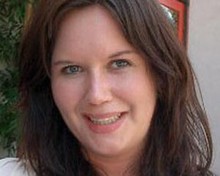
Let’s be honest: the discussion threads on most news sites are more like an angry shouting match than a conversation.
Social networking entrepreneur Even Westvang thinks the sites have created this mess themselves by not providing better comment fields.
Westvang is one of the founders of Bengler - the online development company behind social network Origo, created especially for Norway's A-pressen newspaper group.
“The mistake many news sites make is creating comment sections that become ‘angry clouds’ beneath the articles: fun to write, but not to read. In Bengler, we believe the slow, steady process is better than the one that yields a lot of comments instantaneously,” he says.
Evicts trolls
By 'the slow, steady process' he is referring to measures such as: requiring everybody to have a stable identity; checking that they are who they say they are; and keeping a track record of users so trolls can be evicted.
“By requiring people to identify themselves you do raise the threshold: it gets quiet at first, but you just have to keep going,” says Westvang.
On Origo you have to register with your mobile phone number - in Norway all mobile phone numbers are registered by law. You can operate under a pseudonym on the site, but this can only be changed to your real name and not another pen name.
“The challenge is to make it as attractive as possible; to make the role you have online resemble the one you have in real life," he adds.
“On Origo we often see people eventually choose to write under their full name, because it is difficult to operate anonymously when so many of the other people there use their real names.
“People would never write what they write anonymously in comment sections on their own blogs. It is all about making people accountable in order to get a good online environment.”
Success up north
One place where this strategy has paid off is on Lofoten, a small island community off the north coast of Norway.
On Origo both newspapers and users can establish their own groups - called zones - which they can fill with text, pictures and other content.
Last summer Lofoten’s local newspaper, the A-pressen-owned Lofotposten, set up “Lofotliv”, where their readers can write stories, opinion pieces, upload photos or contribute to an events calendar – all material that is occasionally used in the print edition of the paper.
Over time lots of other local Lofoten zones were created, including one dedicated to local sport and another to local food, making Origo a useful place for local journalists to get story leads.
There may be geographical reasons for why Origo has been such a success here: Lofoten is an archipelago and it is probably easier for its inhabitants to inform each other online than to get in a boat every time they want to hook up with someone from another island.
But Westvang thinks there are other more universal reasons why Origo works for these kinds of online communities.
“We try to create a place where people with real power in society find it worthwhile to express themselves. We all have different roles in society, and people can choose to have those roles on Origo as well. We would prefer everyone to use their full name, because then we know what role they play in society and what their agenda is,” he said.
Origo currently has 40,000 registered users and 1550 zones.
Free daily newsletter
If you like our news and feature articles, you can sign up to receive our free daily (Mon-Fri) email newsletter (mobile friendly).









